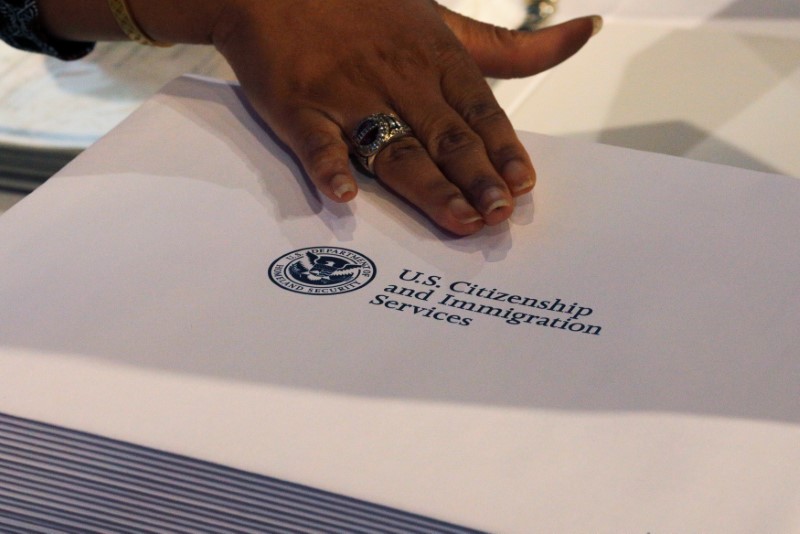By Nick Brown
NEW YORK (Reuters) – Adding a citizenship question to the 2020 U.S. Census questionnaire will yield a “systemic undercount” of immigrants by frightening some away from responding, warned a witness on the first day of a trial that could shape the U.S. political landscape for a decade.
The addition of the citizenship question was announced in March by U.S. Commerce Secretary Wilbur Ross, who billed it as a way to enforce the Voting Rights Act, which protects minorities against voter discrimination.
The Trump administration’s move stirred controversy, prompting 18 states and 15 cities to sue it. The plaintiffs argued the new question is actually intended to depress participation in the census by immigrants, who tend to reside in Democratic-leaning areas.
Testifying for states, cities and civil rights groups in the trial’s first day on Monday, Duke University political scientist Sunshine Hillygus said adding the question to the once-a-decade census “will lead to systemic undercount of Hispanic and non-citizen households” and there is little the Census Bureau can do to avoid that.
Citing several studies, including by the Census Bureau itself, Hillygus said the question will make Hispanics and immigrants less likely to fill out their census forms, fearing citizenship data could be used against them.
If true, that could have a long-lasting impact. Population data collected in the census determines how states divide seats in the House of Representatives, and guides how the government disperses $800 billion in annual federal aid.
The government denies any pretext in adding the citizenship question, and says the Census Bureau could mitigate any decrease in the response rate by getting a full count through outreach campaigns and by following up with non-responders.
But Hillygus said people reluctant to fill out their census forms may be just as reluctant to cooperate with census-takers.
She testified that a person’s likelihood of answering a survey depends partly on the survey itself, particularly how much stress it causes the respondent to answer.
“If I ask my students about their marijuana use, they may be happy to answer for an academic researcher, but less likely to answer an employer,” she said.
Ross’ motives are central to the case, but it is unclear how deeply the plaintiffs can probe them. The Supreme Court has, for the time being, blocked the plaintiffs from deposing Ross, requiring them to rely on his previous statements.
Whichever way federal Judge Jesse Furman rules, the case, led by New York Attorney General Barbara Underwood, is likely to be appealed to the U.S. Supreme Court.
Underwood told reporters at Monday’s trial in federal court in New York City that “it would be even better to have” Ross’ testimony, but “there’s something to be said for moving the trial forward.”
(Reporting by Nick Brown in New York; Editing by Matthew Lewis)



















